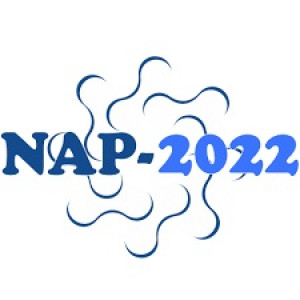


| Location |
|
|---|---|
| Start Date | Sep 11, 2022 |
| End Date | Sep 16, 2022 |
| Event Type | Conference |
| Subject Area | Nanomedicine - Pharmaceutics New energy - Renewable energy Nano Optics - Nanophotonics Nanobiotechnology Nanoscience - Nanotechnology |
The 2022 IEEE 12th International Conference “Nanomaterials: Applications & Properties” will be held on Sept. 11-16, 2022, in a hybrid format, with a “physical” meeting in Kraków, Poland. We are happy to have a beautiful and modern 4- star GALAXY hotel as our conference venue!
The Conference is organized through a partnership between the IEEE Nanotechnology Council, Silesian University of Technology, and Sumy State University, with endorsements and support from the International Union for Pure & Applied Physics and the IEEE Magnetics Society.
The prime focus of the IEEE NAP-2022 is on nanoscale materials with emphasis on interdisciplinary research exploring and exploiting their unique physical and chemical proprieties for practical applications. Although nanoscience and nanotechnology are still in their infancy, this rapidly evolving field of research is quickly transforming almost all aspects of our everyday life. From the low power electronics and supercomputers to advanced drugs and personalized medicine, from new industrial applications and renewable energy to advanced transportation and clean air technologies, nanoscience is the foundation of many transformational discoveries in the decades to come.
Topics:
Nanomaterials Synthesis & Self-assembly
- Novel routes for the synthesis and self-assembly of “building blocks”;
- Size-, shape- and composition-dependent properties;
- Block copolymers, interfacial science and morphology control;
- Nanocomposites and nanohybrids, micro- and nano-encapsulation;
- Carbon -based fullerenes, carbon nanotubes, graphene and its derivatives, graphene oxide, nanodiamonds, quantum dots;
- 2D transition metal carbides/nitrides: MXenes.
Electrochemistry of Nanomaterials
- Electrochemical processes at a nanoscale;
- Nanomaterials and nanodevices for electrochemical sensing;
- Synthesis and characterization of electrocatalytic electrodes;
- Electrochemical surface modification and corrosion mechanisms;
- Photoelectrochemistry of nanomaterials;
- Electrochemical phenomena at the nanobio hybrids and interfaces.
Multifunctional Thin Films & Coatings
- Advances in deposition techniques;
- Thin film growth & epitaxy: theory & experiments;
- New materials in thin film form: diamond-like films, granular alloys, high entropy alloys, oxynitrides, intermetallic compounds;
- Hard, wear-, oxidation-resistant and multifunctional coatings;
- Advances in nanomaterials and surface characterization tools and techniques;
- Electroless deposition;
-Electrochemical (electrolytic plasma processing, plasma enhanced chemical vapour deposition, plasma electrolytic oxidation) deposition;
- Industrial applications.
Nanoscale Characterization & Imaging
- Nanoscale science and engineering, including manipulation of matter at the atomic/molecular scale and assembly phenomena;
- Interactions at surfaces of soft matter, including polymers and biomaterials;
- Electrochemistry at surfaces and interfaces;
- Optical, scanning probe, X-ray, ion- and electron microscopy;
- Semiconductors - surface and interface;
- Electromigration in nanocontacts.
Nanophotonics
- Plasmonic structures and quantum dots;
- Nanophotonics and optical manipulation;
- Spectroscopic studies of nanoscale materials;
- Molecular energy transfer and light harvesting;
- Photonic and optoelectronic materials and devices;
- Photodetectors, sensors and imaging;
- Microwave optics and devices, including superconducting and single photon detectors;
- Quantum information science.
Transport Properties in Nanoscale Systems
- Molecular scale electronics;
- Transport properties in 2D materials;
- Nanocircuitry and nanowires;
- Heterostructures and quantum wells.
Nanomagnetism & Magnetic Materials
- Magnetic nanoparticles, nanowires, thin films and patterned nanostructures;
- Magnetization reversal, domain structure, spin vortices and skyrmions;
- Spin waves and magnonics;
- Spin currents: generation, manipulation and transport;
- Spintronics: memories, field sensors, logic and spin-based devices;
- Nanocrystalline and amorphous magnetic materials;
- Magnetic anisotropy and recording media;
- Heusler alloys, magnetocaloric and magneto-optical materials.
Superconductivity in Nanoscale & Mesoscopic Systems
- Superconducting thin films and patterned structures;
- Hybrid systems, proximity size-dependent effects;
- Imaging and vortex dynamics;
- Josephson effect, nanoSQUIDs, and superconducting electronics;
- Superconducting detectors and nanosensors.
Nanosensors & Nanodevices
- Micro/nano electromechanical systems and sensors;
- Piezoelectric sensors;
- Field-effect transistors;
- Plasmonic and surface-enhanced Raman spectroscopy nanosensors;
- Magnetoelectronic or spintronic nanodevices;
- RF, microwave, IR, UV-VIS and X-ray sensors and single photon detectors.
Nanomaterials for Energy & Environment
- Nanomaterials for solar-to-electric energy conversion;
- Hydrogen and fuels cells;
- Energy storage and generation;
- Bio-inspired energy materials;
- Nanomaterials for environment protection and remediation; CO reduction;
- Nanotech for water technologies.
Nanobiomedical Research & Applications
- Nanoparticles-based platforms for cancer diagnostics, imaging and treatment;
- Nanoparticles manipulation, microfluidics and lab-on-chip technologies;
- Nanodevices and sensors for bio/nanomedicine;
- Bio-nanomaterials and tissue engineering;
- DNA nanotechnology;
- Nanotoxicity.
Theory & Modeling
- First-principles methods;
- Non-equilibrium thermodynamics;
- Multiscale methods for charge/heat transport in nano- and mesoscale systems;
- Atomistic quantum transport simulations;
- Simulation of organic semiconductor devices;
- Assembly operations using molecular manipulators;
- Software for modelling of nanomaterials;
- Mechanics of nanomaterials;
- Microstructure-based models and dislocation analysis;
- Quantum mechanics for modelling of nanomaterials.
Interdisciplinary & Miscellaneous
- Quantum computing;
- Nano- and micro-fabrication techniques;
- Thermal transport and heat exchange at nanoscale;
- Experiments at extreme environments (low/high temperatures, high vacuum or high pressures);
- Ethical, and societal issues in nanotechnology;
- Nanotech business and intellectual property aspects;
- National innovation policies and the globalization of nanotechnology.
